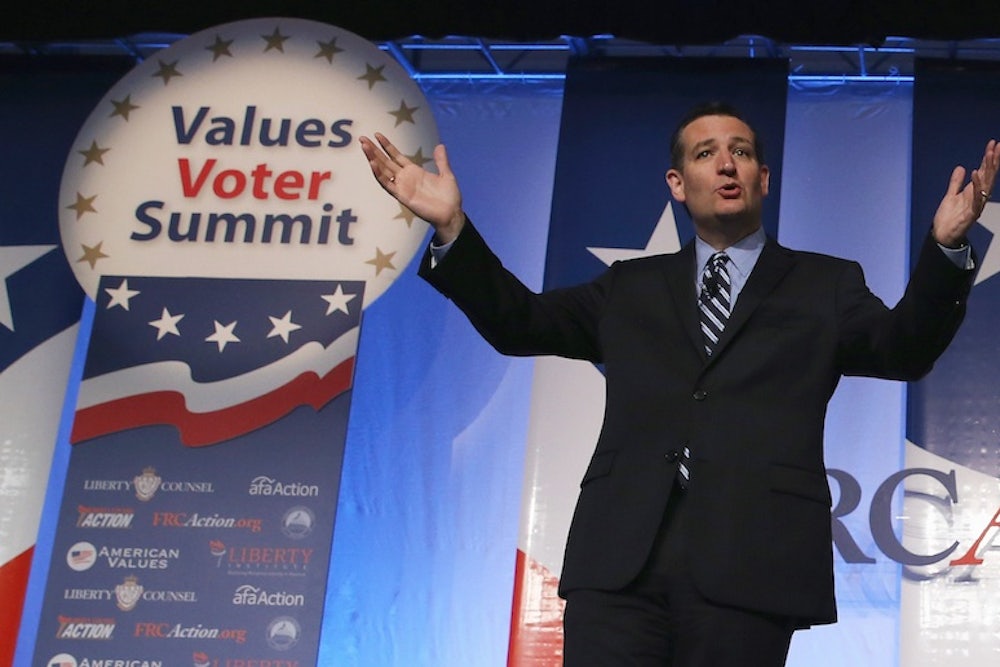Shut down travel between the U.S. and West Africa. Quarantine people who've been to countries like Liberia for 21 days. Stop U.S. troops from going there to help.
So far, it’s mostly Republicans like Ted Cruz and Rand Paul floating such measures. And even they haven't come out and endorsed them explicitly. But I’m willing to bet a lot of people hear such chatter and think, huh, that approach makes a lot of sense. Why not err on the side of caution?
The answer, experts and health officials have keep reminding us, is that Ebola isn’t as scary as it sounds.
To be clear, Ebola is incredibly scary if you have it. Its symptoms are awful and historically it has killed about half the people who develop it. But getting Ebola is a lot harder than catching the flu. You can only get Ebola by coming into contact with somebody who has the disease and is showing symptoms—and, then, coming into contact with that person’s bodily fluids. Protective gear works, if you know how to use it and, of course, if you can get your hands on it. That’s the problem in West Africa, where thousands have already died. The health care infrastructure is weak, while supplies and trained professionals are in short supply.
That’s not an issue here. Even though staff at a Dallas hospital failed to recognize that Thomas Duncan had Ebola when he first showed up in their emergency room, officials with the U.S. Centers for Disease Control (CDC) say they’ve now tracked down and are monitoring everybody who came into contact with him. If anybody else gets sick, local hospitals have the facilities to treat those patients. As Texas Governor Rick Perry said last week, "There are few places in the world better equipped to meet the challenge that is posed in this case. ... The public should have every confidence that the highly trained professionals involved here will succeed in this very important mission.”
Yes, I just quoted Rick Perry approvingly. But you don’t have to take his word for it, or mine for that matter. The media, so typically prone to overreaction, has generally done a terrific job of explaining the science of Ebola and why the U.S. is capable of containing it. Check out Denise Grady’s clear, straightforward primer for the New York Times, for example—or Atul Gawande’s essay on the outbreak for the New Yorker. Towards the end of that article, Gawande, a physician, explains why a travel ban would be so counter-productive:
No travel ban or quarantine will seal a country completely. Even if travel could be reduced by eighty per cent—itself a feat—models predict that new transmissions would be delayed only a few weeks. Worse, it would only drive an increase in the number of cases at the source. Health-care workers who have fallen ill would not be able to get out for treatment, and the international health personnel needed to quell the outbreak would no longer be able to go in. The local economy and health infrastructure would further collapse, causing a far wider spread of the disease. For months, Doctors Without Borders—almost the lone group providing treatment services—has been crying out for help. The international response was contemptible.
None of this means that Duncan will be the last case of Ebola on U.S. soil. During a White House press conference on Friday, Anthony Fauci, director of the National Institute of Allergy and Infectious Diseases, warned Americans that “it is entirely conceivable there may be another case.” But Fauci, like every other public health expert and official I’ve heard in the past few days, thinks the best thing we can do to protect ourselves is to help those countries that can't contain the virus on their own.
—Jonathan Cohn
News from the last few days
